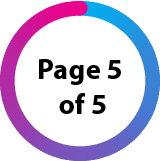Process and Design
The importance of planning and timetabling
All research projects require meticulous planning before collection of data begins and before any writing commences. Look at the Project Management section for further advice.
Topic selection
The choice of research project is very important and is normally submitted in the form of a research proposal. Students are often encouraged to come up with their own ideas but members of academic staff may also offer topics for consideration. Projects linked with external companies or organisations may be acceptable, but please remember that there may be issues relating to intellectual property rights (IPR), resources, commercial confidentiality, etc. Such issues must be discussed thoroughly and resolved prior to commencing project work.
Whichever route you take, the research topic must be of an appropriate level and must demonstrate a degree of originality and analysis in your subject area. Spend time scoping possible areas of research by understanding what already exists, and discussing this with your supervisor.
Your project should be challenging, but feasible within the constraints of time and facilities, without being over-ambitious. When selecting or coming up with original ideas for a research topic you should consider the following points:
Ethics
Advice and guidance about ethics and applying for ethics approval are covered in the next section (Integrity and Ethics) of this course https://generic.wordpress.soton.ac.uk/researchmethods/integrity-and-ethics/
Research Design
This section will discuss the processes involved in the selection of the most appropriate research design and methods for your project.
Selecting your research design
This section is adapted from Bryman, A. (2004). Social Research Methods (2nd Ed.) Oxford University Press, Oxford/ New York.
When selecting a framework for the collection and analysis of data, it is essential that you consider three important criteria:
There are five main types of research design:
Questions and title
This section discusses the importance of selecting the most appropriate research title and questions.
Writing research questions
It is important that your study is organised around a set of questions that will guide your research. When selecting these questions, it is useful to write them so that they frame the study and will form the basis for your research plan. It is important that these questions establish the link between your study and other research that has preceded it; they should also clearly show the relationship of your research to your field of study.
It might help you to start by writing a short sentence describing your research, use this as a working title. This should help formulate your research questions keeping you focused on the aims and objectives of your research.
Refining the research question
To help you refine your question try and answer the following questions:
It is important to remember that you cannot answer all the research questions that occur to you and you should be guided by the principle that the research questions you choose should be related to one another. If you are stuck about how to formulate research questions, it is a good idea to look at journal articles, research monographs or past dissertations to see how other researchers have formulated them.
Aims and objectives
It is useful to consider your research questions in terms of aims and objectives.
The aim of the work should be clearly and concisely defined.
At the conclusion of your project you will need to assess whether or not you have met your objectives and if not, why not. However, you may not always meet your aims in full, since your research may reveal that your questions were inappropriate, that there are intervening variables you could not account for or that the circumstances of the study have changed, etc. Whatever the case, your conclusion will still have to reflect on how well the research design, which was guided by your objectives, has contributed to addressing your aims.
Title
The title for your research should be a clear and precise description of the topic. A title can be phrased as a question or hypothesis (although it doesn’t need to be).
Preparing a good title means:
- having the most important words appear toward the beginning of your title
- limiting the use of ambiguous or confusing words
- breaking your title up into a title and subtitle when you have too many words
- including key words that will help researchers in the future find your work
This completes your research section. Move on to the Integrity and Ethics module.

